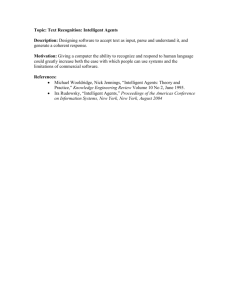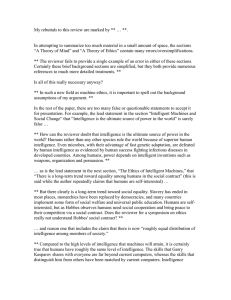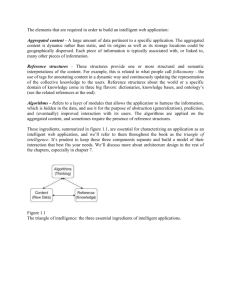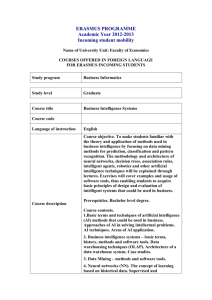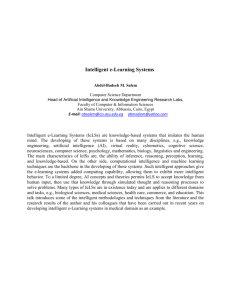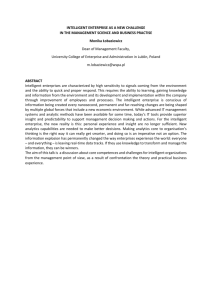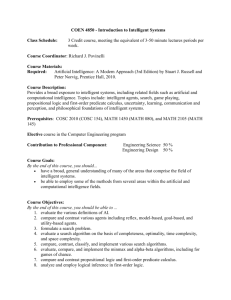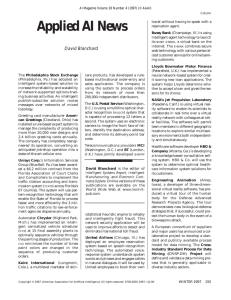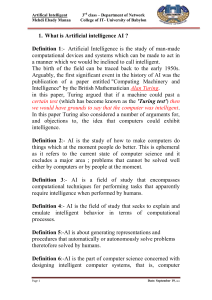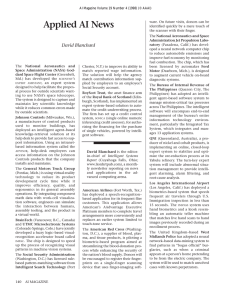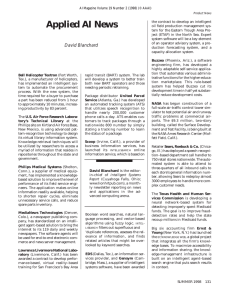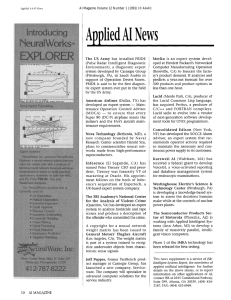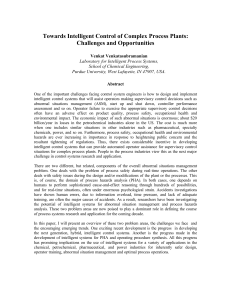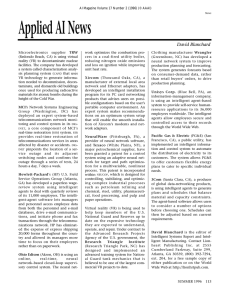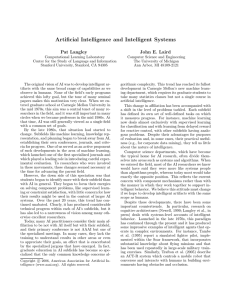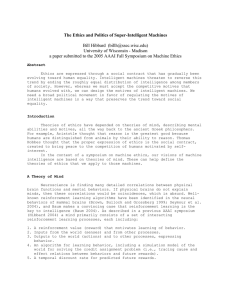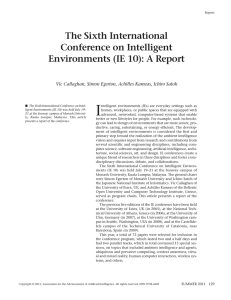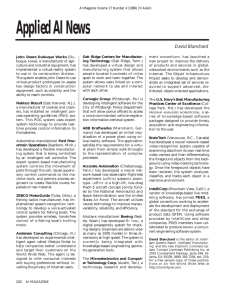In attempting to summarize too much material in a small... “A Theory of Mind” and “A Theory of Ethics” contain...
advertisement
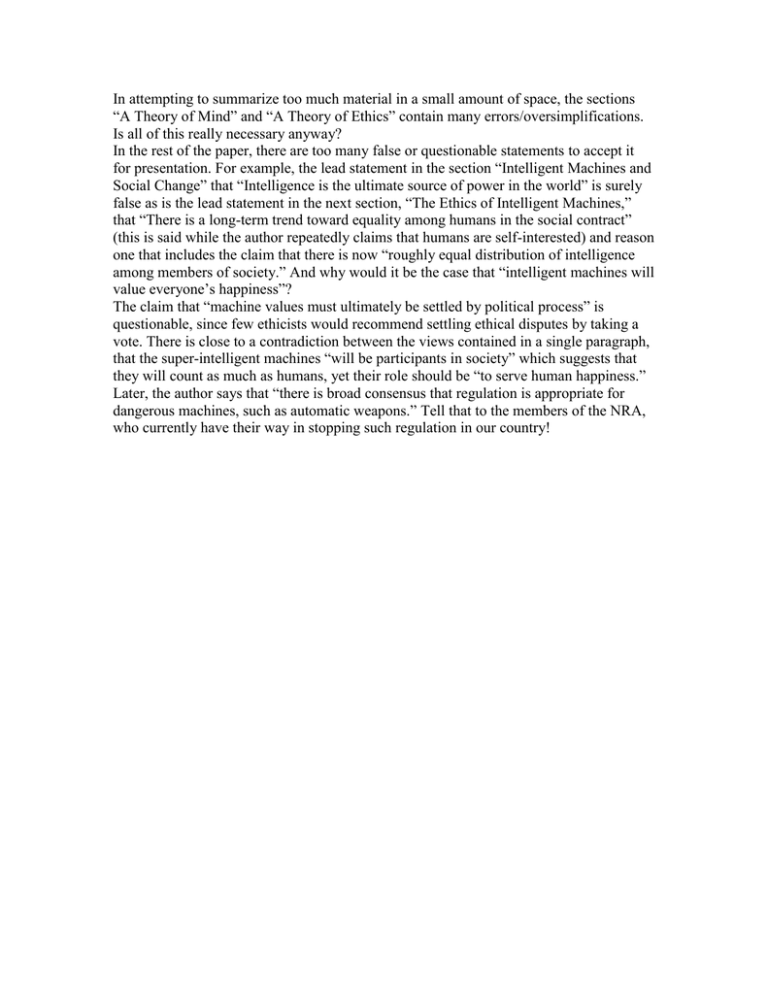
In attempting to summarize too much material in a small amount of space, the sections “A Theory of Mind” and “A Theory of Ethics” contain many errors/oversimplifications. Is all of this really necessary anyway? In the rest of the paper, there are too many false or questionable statements to accept it for presentation. For example, the lead statement in the section “Intelligent Machines and Social Change” that “Intelligence is the ultimate source of power in the world” is surely false as is the lead statement in the next section, “The Ethics of Intelligent Machines,” that “There is a long-term trend toward equality among humans in the social contract” (this is said while the author repeatedly claims that humans are self-interested) and reason one that includes the claim that there is now “roughly equal distribution of intelligence among members of society.” And why would it be the case that “intelligent machines will value everyone’s happiness”? The claim that “machine values must ultimately be settled by political process” is questionable, since few ethicists would recommend settling ethical disputes by taking a vote. There is close to a contradiction between the views contained in a single paragraph, that the super-intelligent machines “will be participants in society” which suggests that they will count as much as humans, yet their role should be “to serve human happiness.” Later, the author says that “there is broad consensus that regulation is appropriate for dangerous machines, such as automatic weapons.” Tell that to the members of the NRA, who currently have their way in stopping such regulation in our country!

